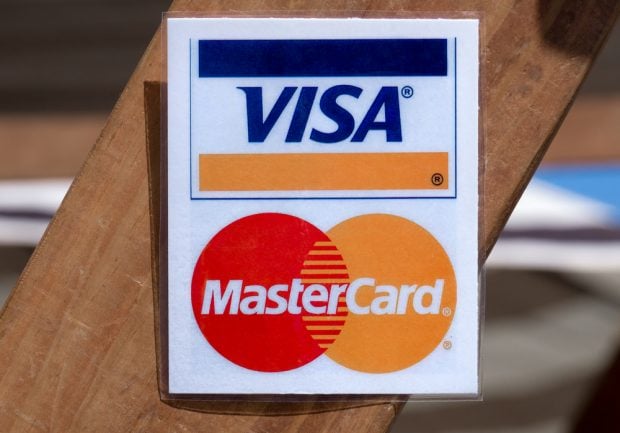As the Oct. 1 deadline for the interchange cap to go into effectfades into history, consultants who work with credit unions onmanaging their debit programs are urging CUs focus more attentionon their debit programs.
|The consultants say CUs need to do this for their own recordsbut also to help industry and government analysts better judge theoverall costs of the regulation.
|All but three credit unions are exempt from the cap, butanalysts contend that even those exempt CUs will see theirinterchange income erode under the weight of the cap's interchangelimits and processing rules.
|But, analysts ask, if credit unions have not taken the steps tobetter familiarize themselves with their debit programs and how tomanage them, how will they know how much of an erosion they areseeing?
|“I am confident there are still credit unions, particularlysmaller asset credit unions that lack sufficient staff, that don'tknow how much income they get from their debit interchange or whatthey need to do improve it,” said Ron Silvia, director of debitservices at PSCU Financial Services. “That will make it very difficult tomeasure the impact of the Durbin amendment over time on theirincome,” he added.
|Bill Lehman, portfolio consultant with CSCU agreed, but notedthat processing changes that the amendment included are alsohelping more CUs manage their debit programs more effectively.
|The amendment requires that debit cards have at least two unrelated networks available to route transactionsand the work of reviewing existing processing relationships oraccepting bids for new ones has helped many CUs focus on theirprograms, Lehman said.
|“The important thing is that CUs understand at least the outlineof how their programs work and be able to read reports which canshow them where their transactions might be gaining or losing moneyover time,” Lehman said.
|As Silvia and Lehman indicated, the phenomenon appears tiedclosely to asset size. Many large credit unions are well aware ofwhat their debit interchange brings them each month or quarter oryear and how much the Durbin amendment could cost them.
|Representatives of two of the three creditunions that face that cap reported facing loses from the millionsof dollars to the tens of millions of dollars but have pledged notto increase fees on their members to soften the drop.
|But many smaller credit asset credit unions are not as aware oftheir debit programs, what income they bring in and how much theypossibly stand to lose under the indirect impact of the cap.
|One example is the 16,000-member, $219 million Waterbury CountyTeachers Federal Credit Union, headquartered in Middlebury, Conn.The credit union has issued about 2,000 cards so far and onlyseen checking accounts penetrate to about 25% of the itsmembership, a fact that WCTFCU CEO George MacDonald attributed tothe CU starting to offer checking accounts relatively late, only inthe late 1990s.
|“For much of our history, we focused primarily on savings andmaking loans,” MacDonald explained, but added that debit cards havebecome more important as time has gone on, allowing the CU tooperate cashless branches.
|The credit union did not have to change its debit processors tocomply with the Durbin regulations. It already had twononaffiliated networks on the cards. MacDonald said the debitprogram brings the CU roughly $200,000 per year in interchange andother fee income, but the CU does not track it particularlyclosely. “It just isn't a big part of our income stream,” MacDonaldsaid.
|At the other end of the spectrum may be the 25,000-member, $164million Treasury Department Federal Credit Union, headquartered inWashington, D.C. It's CEO, Alfred Scipio, declined to say how manydebit cards the CU issued or how much interchange they brought in,but he said the CU did track the interchange and implied it wouldbe prepared to act if it saw its debit interchange fall.
|“Under current law, we are supposed to be exempt from the impactof that amendment,” Scipio said. “If it turns out we are hurt byit, that will be a violation of the law, and we're not prepared tocomment on the matter unless that happens.”
|Somewhere between the two are credit unions like the15,000-member, $258 million Department of Commerce Federal CreditUnion, also headquartered in Washington. It's CEO, Evan Clark,reported that Department of Commerce brought in $550,000 ininterchange income for the last 12 months ending March 31. But theCU did not track that number themselves. They only had it becauseauditors broke it out as part of the audit process and includedinterchange from the CU's credit card as well, Clarkexplained.
|Two Big CUs Prepared to EatLoss
|Two of the three credit unions that are not exempt from the capon debit card interchange say they have no plans to charge theirmembers additional fees or take other steps to make up theloss.
|But they each decried the impact of the cap on their members andsaid they will wind up suffering from the cap even without anyadditional fees.
|The three are the 3.8 million-member, $44.4 billion Navy FederalCredit Union, headquartered in Vienna, Va.; the 1.6 million-member,$23 billion State Employees' Credit Union, Raleigh, N.C.; and the 1million-member, $15.1 billion Pentagon Federal Credit Union,Alexandria, Va.
|The three are the only CUs with assets over the $10 billion thatthe cap set as maximum amount to qualify for an exemption. CUs withassets below that amount are supposed to be sheltered from itsimpact, but there are concerns that they could face an erosion oftheir interchange income as well.
|Dave Willis, senior vice president for debit cards at NavyFederal, declined to say how many debit cards the credit unionissues or how much interchange income it represented, but hepointed out that the credit union is the 10th largest Visa debitcard issuer in the country.
|According NCUA records, the CU had roughly 2.3 million checkingaccounts as of the end of June and took in more than $254million in overall fee income in 2010.
|“We don't have any plans to add any additional fees or anythinglike that to our products or services,” said Willis. He stressedthat Navy Federal's size has meant the CU has not had to addadditional fees to its products to make up the income, but said theCU expected that banks and other credit unions would have to takethat step.
|“For a lot of financial institutions, themoney has to come from somewhere,” he said.
|Leanne Phelps, senior vice president of card service programs atState Employees', said her credit union also expected to take a bigloss from the cap but it also would not add fees to its existingproducts or services or raise the fees it already charges.
|But she also said the CU's members would be hurt by the ban asthe loss of income from debit interchange because the CU might haveto not be as aggressive in its pricing on other products orservice. Phelps explained that maybe the CUs interest on savingsmight not be as high or the interest on different loans might notbe as low as it would be otherwise.
|“There's no doubt but that this is going to hurt our members,”Phelps said, “just not directly and not any way that it going to beimmediately evident.”
|The last of the three, Pentagon Federal, declined to comment onthe impending cap or on its debit card program or what it might doto recapture some of its lost revenue. According to the NCUA, thecredit union had 125,000 checking accounts as of the end of Juneand brought in $15.4 million in fee income in 2010.
Complete your profile to continue reading and get FREE access to CUTimes.com, part of your ALM digital membership.
Your access to unlimited CUTimes.com content isn’t changing.
Once you are an ALM digital member, you’ll receive:
- Critical CUTimes.com information including comprehensive product and service provider listings via the Marketplace Directory, CU Careers, resources from industry leaders, webcasts, and breaking news, analysis and more with our informative Newsletters.
- Exclusive discounts on ALM and CU Times events.
- Access to other award-winning ALM websites including Law.com and GlobeSt.com.
Already have an account? Sign In
© 2024 ALM Global, LLC, All Rights Reserved. Request academic re-use from www.copyright.com. All other uses, submit a request to [email protected]. For more information visit Asset & Logo Licensing.









